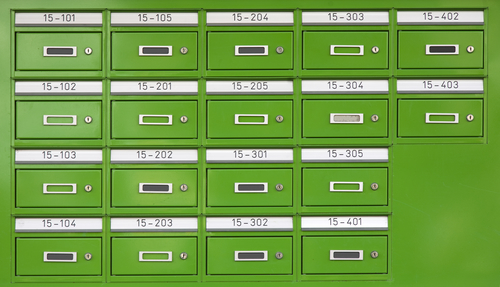Dutch should go for real transparency in corporate ownership

 A register of corporate ownership that is accessible to all would help combat crime. But the Dutch proposal – a registry behind a paywall and limited data access – does not go far enough, write Arjan Al-Fassed and Anne Scheltema Beduin.
A register of corporate ownership that is accessible to all would help combat crime. But the Dutch proposal – a registry behind a paywall and limited data access – does not go far enough, write Arjan Al-Fassed and Anne Scheltema Beduin.
In the Netherlands it’s still possible to create legal companies without revealing the identity of the actual owner, Criminals abuse such constructions for purposes of corruption, fraud, money laundering, organised crime and cartels. A public registry, the so-called UBO registry, aims to change all that. But it can only happen if the registry is accessible to all.
A UBO registry is a central registry which contains the names of the ultimate beneficiaries and other legal corporate entities. A ‘UBO’ or Ultimate Beneficial Owner, is the person who is pulling the strings, openly or behind the scenes. Openness about the identity of the UBO strengthens confidence, increases accountability and gives the market, stakeholders, investors, businesses and consumers a proper insight into who exactly they are dealing with.
Corruption, money laundering and the financing of terrorism are international problems and that is why, before June 26 2017, all EU countries have to have a registry in place. Recently, finance minister Jeroen Dijsselbloem presented an outline of the Dutch version of the UBO registry.
Although Dijsselbloem is an advocate of a registry, his version is far from offering real transparency. Not only does the government want to erect a paywall, it also wants to know who wants the information: every visitor needs to log in. Moreover, the general public’s access to the registry is limited to a minimal data set.
Shadowy constructions
The data from a UBO registry are only properly useful if access is unlimited and equal for all. Obscuring information about companies, foundations, associations and organisations is part of the problem. The minister’s obstructions are also flying in the face of what the registry is meant to achieve; i.e. putting a stop to the creation of shadowy constructions used for illegal purposes.
In order to do that, the complete data set needs to be accessible. In Myanmar, for instance, a criminal chain made up of military elites, drug barons and money laundering organisations related to the jade industry was discovered. This was only possible because the complete data set was publicly accessible, machine readable and programmatically compatible. Public watch dogs, among them Global Witness, were thus able to reveal the hidden ties between the jade industry and the most important players.
A pay-per-view system is problematic because it impedes the use of the complete data. If you have a list of administrators who have been convicted for money laundering and you want to combine it with the Dutch UBO registry to check if any of the people appearing on the list is on the board if a Dutch company, the costs of your research will mount considerably.
The finance minister is silent on the subject of open data in its UBO registry proposal. He is hiding behind the privacy argument, which is a questionable one since it is at odds with transparency. The minister does admit that a strict access limitation would be difficult to achieve and monitor and would be expensive – both for the administrators and the users of the registry – and not in line with the purposes of the Directive.
Chamber of Commerce
It’s not surprising that the Chamber of Commerce is eager to run the new UBO registry. It has been monopolising the administration of the trade registry for years and wants a disproportionate amount of money for access to the information in its domain. For this alone, the Chamber of Commerce should not be considered for the job.
There is more. Unlike in other countries, the Dutch trade registry is not accessible as open data. What is more, the Chamber of Commerce is arguing that re-use of data from the public trade registry by third parties should be disallowed. Britain, Denmark, Norway, Belgium and even Romania have a freely accessible trade registry open to all. Britain and Denmark are planning to make the UBO registry accessible as open data as well.
Public registries and paywalls are not compatible. Asking payment for data acts as an unnecessary hurdle for the (re) use of these data. Moreover, the Chamber of Commerce has been unable to provide a clear insight into the costs and benefits of the administration of the trade registry and even the Dutch national audit office has judged that the two are unevenly balanced.
In the end, a truly open public registry is better for the market, for the public and our safety.
Arjan El-Assad is director of the Open State Foundation. Anne Scheltema Beduin is director of Transparency International Nederland
This article appeared earlier in the Volkskrant
Thank you for donating to DutchNews.nl.
We could not provide the Dutch News service, and keep it free of charge, without the generous support of our readers. Your donations allow us to report on issues you tell us matter, and provide you with a summary of the most important Dutch news each day.
Make a donation